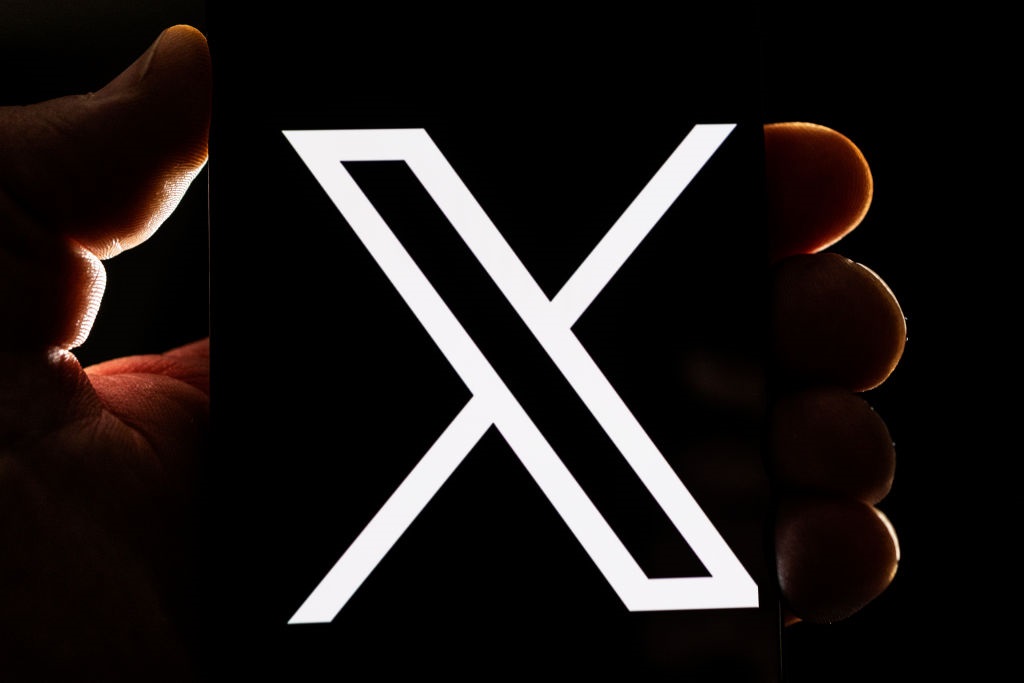
- Billionaire Elon Musk has shaken things up at Twitter since acquiring a majority stake in the social media company.
- With anti-money laundering and consumer protection acts in place, one would expect tracking peddlers of disinformation and hate speech should become easier for law enforcement authorities.
- But often, and despite South Africa's legislative framework, this remains a challenging task.
- For more stories, visit the Tech and Trends homepage.
Billionaire Elon Musk has shaken things up at Twitter since acquiring a majority stake in the social media company.
Most recently, the site has been rebranded to the name X (just like the letter) as Musk plans to diversify the platform's offering.
A subscription-based service formerly known as Twitter Blue, and now called X Premium, was introduced to allow anyone, not just celebrities and influencers, to have a verified account at a cost of R145 a month.
Musk's intervention was an attempt to curb the problem with bots on the platform.
A bot, put simply, is an automated program used to engage on social media platforms that can be managed by a single person to operate hundreds or even thousands of accounts.
On Twitter, the bot problem takes the form of accounts posing as people with strong political opinions.
They have been accused of, for example, interference in elections, manipulating public discourse and promoting online mis- and disinformation.
With X Premium, subscribers will see less paid-for advertising on the platform, their posts will be prioritised over non-verified accounts on the "for you" recommendations page, and they are granted the ability to create posts with 10 000 characters - a large number compared to the typical 280 characters that ordinary users can post at a time.
Along with these perks, the new Twitter verification system requires the input of credit card details. Once your card details are entered, you are prompted to add a registered cellphone number to finalise the verification of your account.
With anti-money laundering and consumer protection acts like the Promotion of Access to Information Act (PAIA), Financial Intelligence Centre Act (FICA), Regulation of Interception of Communications and Provision of Communication Related Information Act (RICA) and Protection of Personal Information Act (POPIA), one would expect tracking peddlers of disinformation and hate speech should become easier for law enforcement authorities because transactions and phone numbers of verified accounts are saved and can be accessed.
However, the details of these acts and key limitations must be understood. The first step in taking legal action lies in identifying the actor behind the account.
Often, and despite our legislative framework, this remains a challenging task.
Users may add additional layers of protection like burner emails (a random email that redirects all mail to your email address) or virtual private networks (VPNs) to protect their real identity.
Further, social media platforms place high value on the privacy of their "clients" and add additional safeguards to protect their data.
All laws have their limitations and data protection, and privacy is no different in this respect.
Legislation, however, tends to play catch-up with the evolution of digital technologies and social media networks.
The POPI Act is the primary law protecting personal information.
This includes use of your name or email address or other personal information when creating a social media account on sites like Twitter.
There are some exceptions to the general protections.
If a public organisation needs to use your personal information to prevent or detect illegal activities, they can sometimes bypass protections in the act.
Social media corporations such as X can also be given permission to use your personal information if it is in the public interest.
For example, if a government agency suspects someone of breaking the law online, they may be allowed to access that person's personal information.
PAIA, another law dealing with access to information, gives effect to Section 32(1)(a) & (b) of the Constitution, which entrenches the right to access to information held by the state or private persons where that information is required for exercising or protecting any rights.
Notably, where a public body submits a PAIA request, it must be acting in the public interest - and not its own.
Finally, RICA regulates the interception of communications and the provision of communication-related information.
The act has its limitations, and the Constitutional Court has declared certain sections of it unconstitutional in that it fails to provide adequate protection of privacy and freedom of expression.
However, the act still allows for the interception of data messages and the acquisition of identifying information, in certain cases, through the lawful procedures set out in the act and if granted by a designated judge.
Having laid out the data protection legislative framework, you may also want to consider the efficacy of these laws.
Without a legal presence in South Africa, enforcing our laws against the regulations of social media platforms may prove difficult despite the applicability of these laws.
The second hurdle relates to Twitter's policy on availing personal information to interested parties.
It will only reveal the identity if required "by appropriate legal process such as a subpoena, court order, or other valid legal process documents".
South African legislation governing social media can, in fact, be said to apply to Twitter to the extent their activities affect the country but, this requires recognition and cooperation by Twitter.
While X Premium does provide an additional layer of identification and verification, it does not appear to be a panacea for combatting bad actors in the Twittersphere.
Although a display name and image are required, they need not be that of the person who has created the account.
According to X's terms and conditions: "While you are not required to display your real name or image on your profile, your account should not use false profile information to represent itself as a person or entity that is not affiliated with the account owner, such that it may mislead others who use Twitter."
However, earlier this year, the popular @ChrisExcel102 account topped the trending lists after Bianca Coster - whose picture is used by the account without her authority - wrote she had been humiliated, ridiculed, insulted, and just downright tormented because of the Chris Excel account on Twitter using her picture.
In response, the account tweeted Chris Excel "is a brand, and it's not affiliated with any person".
@ChrisExcel102 also shared a screenshot stating the account, which subscribed to X Premium and received its blue verification tick, had been reported multiple times.
According to the person or people behind the @ChrisExcel102, they are not in contravention of Twitter policy and continue to use the image of Bianca Coster with online content that some may consider derogatory - especially about women and celebrities.
- Yossabel Chetty is a lead researcher and Kyle Janse is an analyst specialising in law at the Centre for Analytics and Behavioural Change.




 Publications
Publications
 Partners
Partners
























